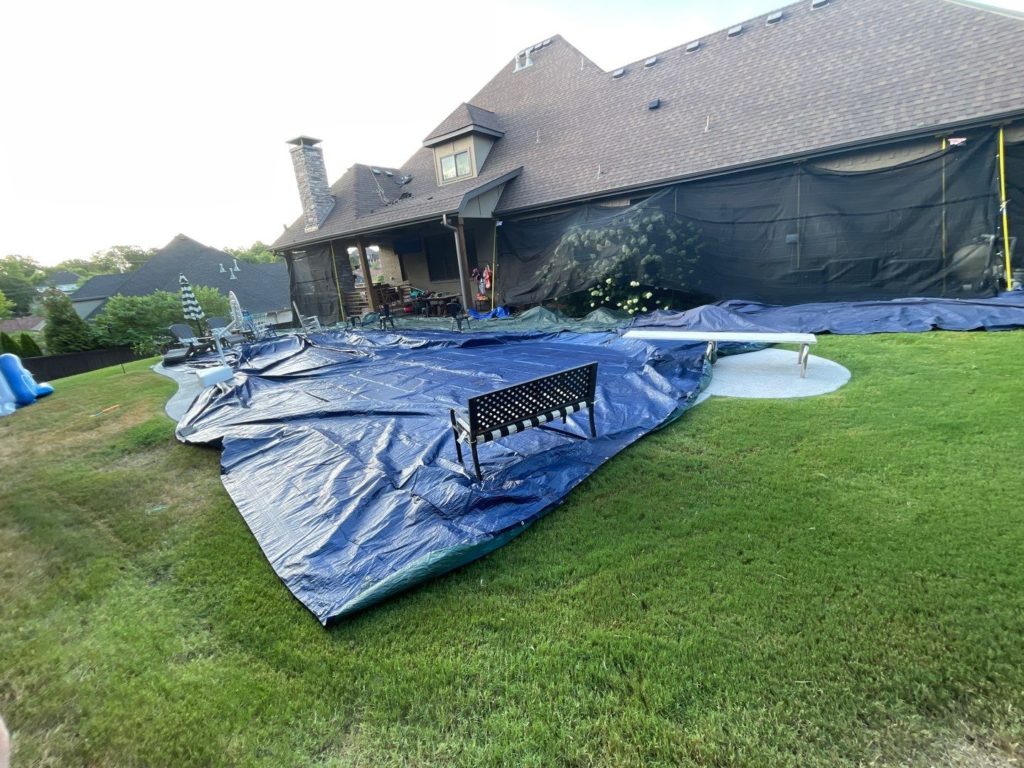How to Remove Mold from Roof Shingles
As an experienced and trusted Denver roofing company, we know your roof’s value as a defense against the onslaught of the elements.
But that same sunlight and moisture that a roof in Denver keeps at bay makes it vulnerable to microbial growth, including so-called black mold. How best to remove it?
Mold on Roofs: Clearing Up the Confusion
Many roofing companies in Denver explain mold on roofs incorrectly, creating immense confusion.
Although those unsightly black streaks you often see on a shingle roof in Denver are called “black mold” in the industry, they are not mold at all and aren’t harmful to your family or pets. Considering what actual molds are capable of, that’s a huge relief.
They’re also not moss. Any good roofing company in Denver will tell you that moss is bad news for your roof, but it isn’t what we’re concerned with here.
The black stuff is colonies of photosynthetic bacteria, sometimes called blue-green algae. They’re not algae, and this one isn’t even blue or green! So what gives?
This species, Gloeocapsa magma, produces a black chemical as a natural sunblock while allowing light in for photosynthesis. It thrives in damp, shady areas.
Any good roof company in Denver will recommend installing copper or zinc strips at the roof’s ridge and keeping up with roof maintenance, such as trimming overhanging branches, cleaning out gutters, and annual soft washing to help prevent Gloeocapsa magma from growing.
It feasts on limestone in the shingles but causes minimal structural harm. However, it lowers both curb appeal and reflectivity. A less reflective roof heats up more, especially in summer, so your AC has to work harder, and your energy bills spike.
How Do Roofing Companies in Denver Eliminate Mold?
Any experienced roofing company in Denver will tell you the same basic principles of removing “black mold” from your shingles: apply a chemical that kills it, then rinse it off without using high pressure that would damage the shingles. And use appropriate personal protective equipment.
However, many roofing companies in Denver recommend using chlorine bleach or trisodium phosphate (or both). We don’t.
Mixing chlorine bleach with other cleaning agents, acidic or basic, creates highly toxic gasses. Even on its own, chlorine bleach will harm your plants, wildlife, pets, and people.
Oxygen bleach, also known as hydrogen peroxide, is a superior alternative. It doesn’t work as quickly, but any roof company in Denver that cares about its clients and their neighborhoods will recommend it.
When exposed to sunlight, it decomposes into water and oxygen. The high local oxygen concentration kills the microbes, but when flushed away with water, zero toxic chemicals land in your yard.
You’ll still need to move yard furniture out of the way and protect delicate plants against falling water, but that’s it.
Hire a Denver Roofing Company to Remove Mold from Your Shingles
You may wish to save a few dollars by DIY roof cleaning. However, roofs are slippery at the best of times, and especially when slick with water. Unless you’re used to working at height, on steep slopes, and have proper safety ropes and a harness, it’s too risky.
The bottom line? Hire a trusted roofing company in Denver with the expertise to clean your roof effectively and safely.
